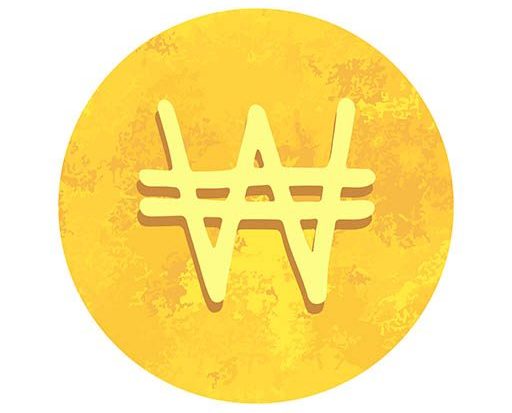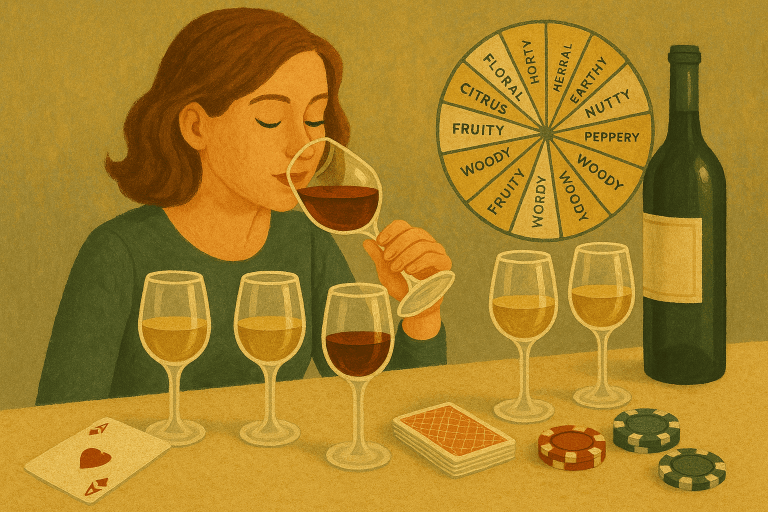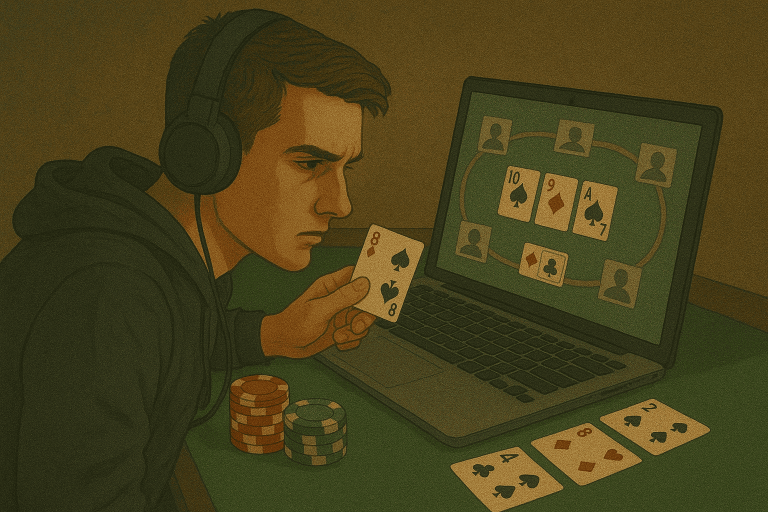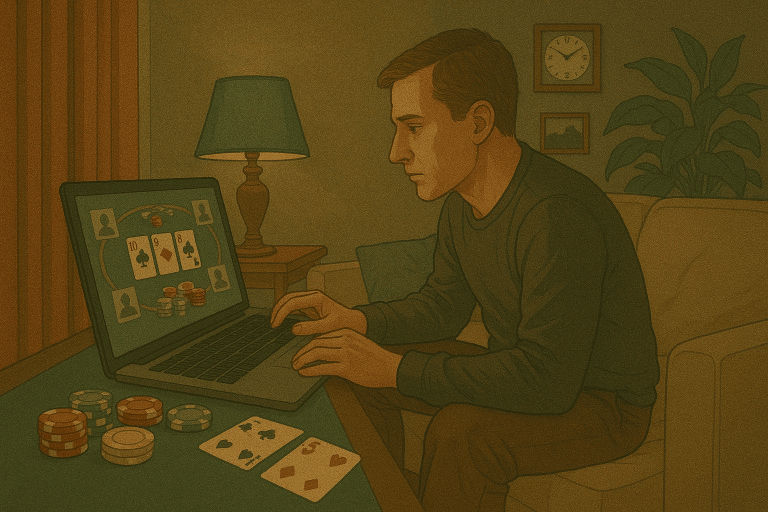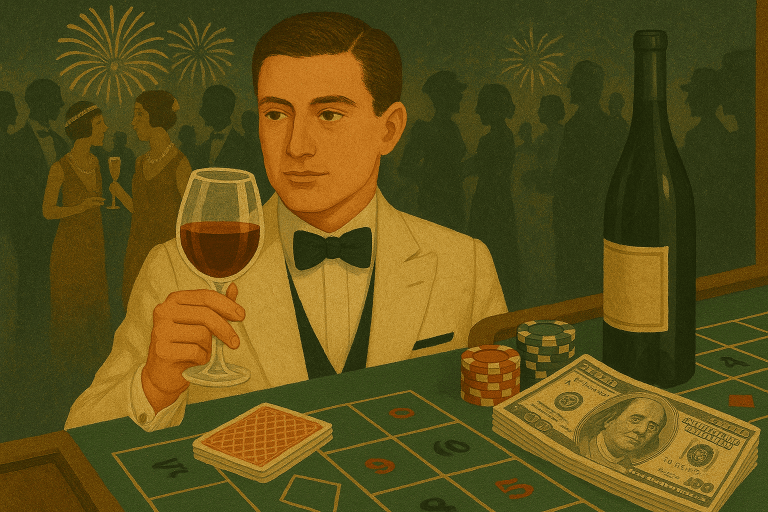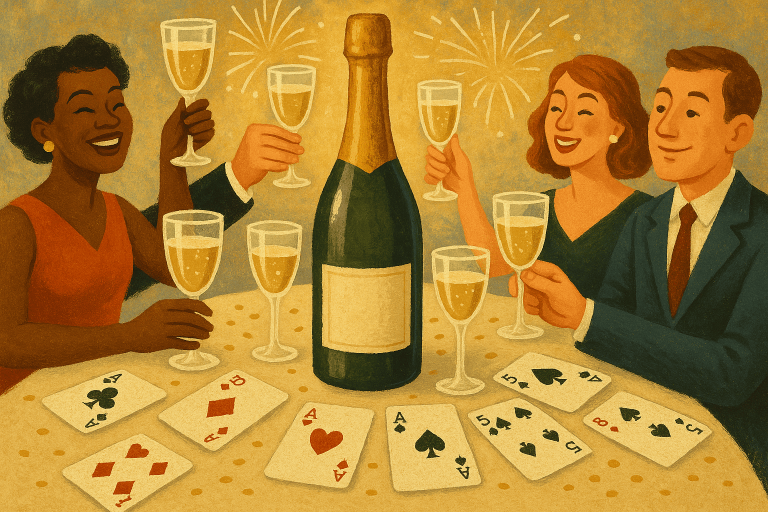From Cellar to Casino: What Fine Wine and High Stakes Have in Common
Elegance, tension, and taste
At first glance, a candlelit wine tasting and a fast-paced casino night seem worlds apart. But underneath the surface, both are rituals of anticipation. One swirls a glass, the other shuffles a deck. Each moment builds toward a revelation — a sip, a card, a spin — that can shift the mood entirely.
Fine wine and high-stakes games attract similar minds: curious, strategic, emotionally engaged. They are not experiences for the indifferent. They are about attention, timing, and desire. And perhaps most of all, about knowing when to hold back — and when to go all in.
The language of luxury
Both the wine world and the casino world have their own lexicons. Terroir, vintage, bouquet — odds, bluff, bankroll. To an outsider, these words seem arcane. But to those who live in these realms, they are signals of sophistication.
Walking into a wine cellar or a sleek online casino interface activates the same part of the brain: aesthetic judgment. The background music, the layout, the colors — they matter. Because before you taste or play, you perceive.
Control and chaos
There’s a paradox here. Wine lovers are obsessed with control — temperature, air, glassware. And yet, no bottle can ever be predicted entirely. Gamblers seek control through strategy — counting cards, reading behavior — but chance always wins a seat at the table.
In both domains, mastery comes from knowing when to let go. A professional taster allows the wine to speak. A skilled gambler reads the flow and adapts. Neither forces outcomes. They participate.
Slow build, sudden turns
Fine wine takes time. Years in a barrel, days of planning a tasting, minutes spent savoring one sip. Casino games, especially online, move faster — but even there, tension builds. A high-stakes poker game can unfold like a symphony: soft beginnings, rising action, a dramatic crescendo.
Pleasure, in both cases, is heightened by contrast. Stillness before excitement. Familiarity before surprise.
The psychology of reward
Wine rewards patience. Casino games reward boldness. But both trigger dopamine. Both light up the brain’s pleasure centers, especially when there’s a sense of earned outcome.
A rare vintage found at a quiet bistro. A well-placed bet that lands just right. These moments feel personal. They stick with you not just because of gain — but because they came from choice.
Status symbols and social currency
Wine and gambling both play into identity. The bottle you order or the game you play tells a story. Are you conservative, or daring? Are you refined, or unpredictable? These experiences communicate values, not unlike fashion or art.
And let’s not forget: both are often shared. Whether you’re clinking glasses or joining a virtual blackjack table, the social ritual enhances the act.
From exclusivity to accessibility
Once, both fine wine and casino play were limited to the elite. Now, wine subscription boxes and online platforms have made both more democratic. What used to be velvet-rope experiences are now available — with a smartphone and curiosity.
This shift hasn’t reduced quality. In many cases, it has expanded innovation. The wine world now sees biodynamic blends and tech-savvy sommeliers. Online casinos are experimenting with immersive game design and global tournaments.
Learning through leisure
Neither wine nor gambling should be rushed into. But both reward those who study — who explore, who fail, who taste widely.
Just as a sommelier builds a mental map of grapes, so does a poker enthusiast build a map of human behavior. And as those maps deepen, so does the joy.
Conclusion: The two sides of refinement
Wine and gambling, at their best, are rituals of pleasure and learning. They reward nuance. They invite attention. And they ask us to risk something — a little money, a little ego — in exchange for feeling fully present.
You don’t need to choose between them. In fact, pairing a thoughtful wine with a smart bet might be one of the finer ways to spend an evening.
